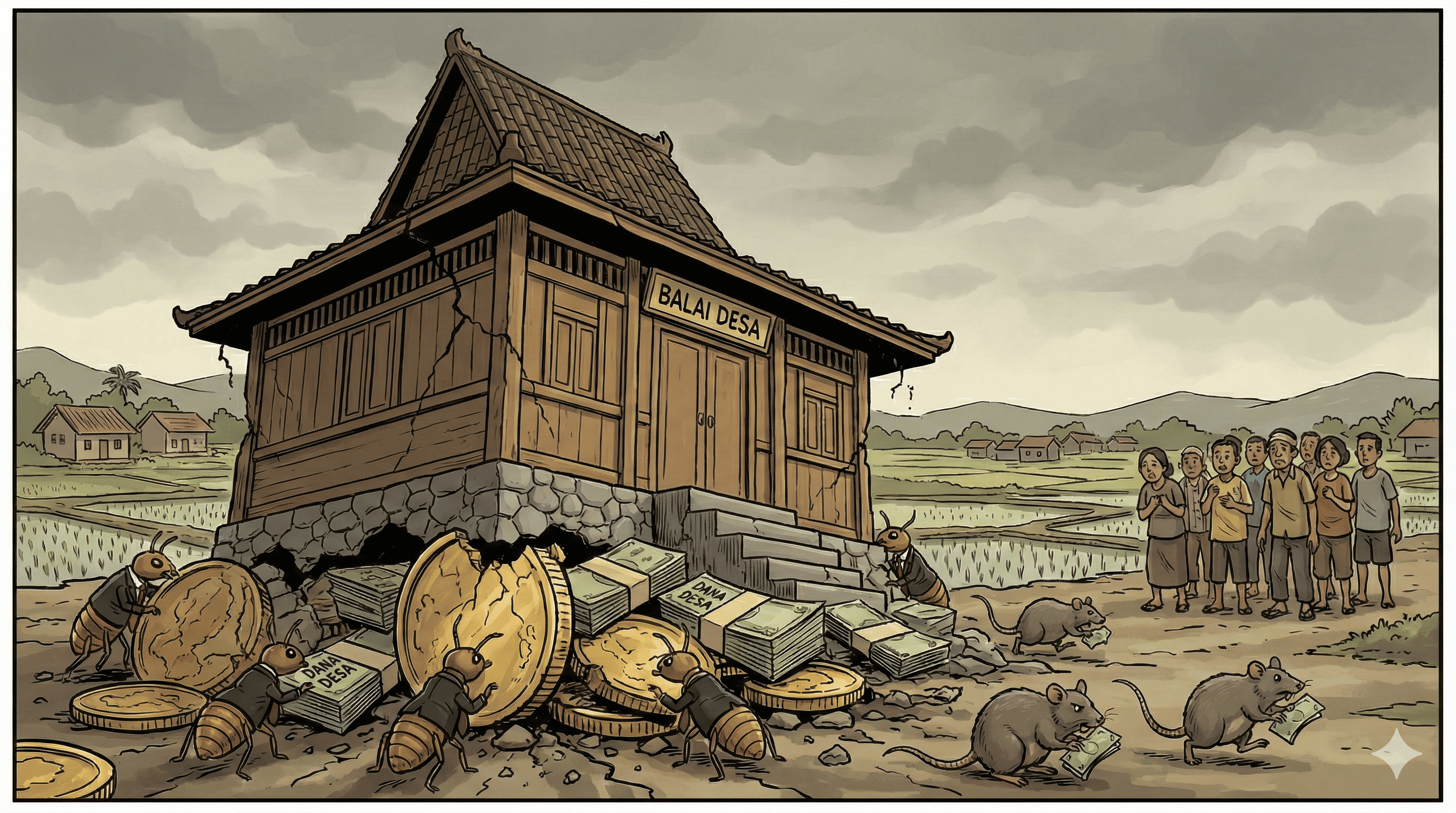Makassar, Sulbarkita.com - Somba Opu Fortress in Somba Opu Subdistrict, Barombong Sub-District, Gowa District, holds various historical heritage in Sulawesi. The fortress, built in the mid-16th century by King Gowa IX Matanre Karaeng Tumapa'risi Kallonna, also contains traces of the history of traditional houses in Mandar, West Sulawesi.
The traditional house of Sulbar is quite typical in the 1,500-hectare Citadel, because there we are introduced to the custom house of every district in Mandar region. Starting from the traditional house of Polewali Mandar, Mamasa custom house, Mamuju custom house, and traditional house Majene.
Traditional House of Polman
When we enter through the eastern path of the castle, will be seen a custom house stage overlooking the south. But the house located right at the fork of the road will be hard to recognize because it has no name. Sulbarkita.com just found out that the custom house Polman, after meeting the people who take care of it.
One of them Rya Amir, 15 years, a child from Cidondeng Amir, 40 years, who had been responsible for caring for the custom house. Rya claimed to live with his parents in the custom house, "Our family has long lived here, my father said stay here long before I was born," he said when met Sulbarkita.com on Friday, February 16.
Nevertheless, the condition of the house is quite apprehensive. The color of the wooden house is pale because it is not touched by paint. A number of parts of buildings such as walls and columns look obsolete due to age. Some roof tile roof or wood ulinnya also have fallen, so replaced with zinc.
Rya said it was due to the absence of home maintenance fund regularly. His parents also can not do much because they never get support from the government. But the Rya family had to pay their own expenses to be comfortable inhabited.
As happened two weeks later, his father renovated a number of ruined houses. "The roof and the front steps of the decayed house have been replaced, the cost of my own father," said Rya while declaring his father Cidondeng was not at home.
Rumah Adat Mamasa
About 600 meters from the customary house of Polman to the west, there is a traditional house Mamasa. Like the fate of the customary house of Polman, Mamasa custom house also has no name. Its existence was only confirmed after Sulbarkita.com met a number of residents there.
Traditional house that resembles the Tongkonan, the traditional house of Toraja Land is facing north with thick trees around it. The front yard extends beyond the size of the futsal field. Unlike Polman's traditional house, the house is quite quiet. No one seems to be guarding the house.
Rumah Adat Mamuju
Far to the west, about 200 meters from the traditional house of Mamasa, there is a traditional house Mamuju. Unlike other traditional houses, Mamuju's traditional house has a sign saying "Sapo Kayyanna To Mamunyu" which in Mandar means "Great House of Mamuju People".
The condition of the house is also still quite sturdy and well maintained. From the front, the staircase staircase was made of cement with a shiny ornament of ceramic arrangement. Even so with the yard of houses overgrown with plants and decorative grass.
Unfortunately, the traditional house can only be seen from a distance. For some dogs belonging to the house keeper had been blocked in front of the road. As a result, we can not enter the custom house.
Majene Custom House
Stones throw from Mamuju traditional house, stands the traditional house of Majene. But his condition is no more fortunate than the traditional house Mamuju. This historical legacy looks rickety with age.
The stairs made of ironwood here and there are cracked. So that is dangerous for visitors who want to enter the house on stage. Some parts of the stairs have also been replaced, but the wood used is not ulin so it reduces the value of aesthetics.
The traditional house of Majene was inhabited by Agus, 34, along with his wife and two sons. Agus is Daeng Silang's 60-year-old son-in-law who is mandated by the Majene government to look after the traditional house.
According to Agus, his father-in-law was initially honored by the Majene government, but the honor ceased when Majene entered the province of West Sulawesi, the result of the expansion of South Sulawesi. "Last my father-in-law honorarium in 2006, the amount of 30 thousand rupiah per month, but dirapel per year," he said.
Just like the attention of the Majene government to Daeng Silang, the budget maintenance of traditional houses also taka existed since Sulbar stood. But once assistance was received in 2014 after Daeng Silang faced Majene government. "Public Works Agency Majene sent 200 sheets of tin roof, my father-in-law then replaced the broken roof" he said while hoping the government will keep its historical assets in mind. (ERISUSANTO)
Sunday February 18, 2018 | 17:39

Rumah adat Polman di Benteng Somba Opu/Sulbarkita.com-Eri









Comments For This News (0)
Post a comment